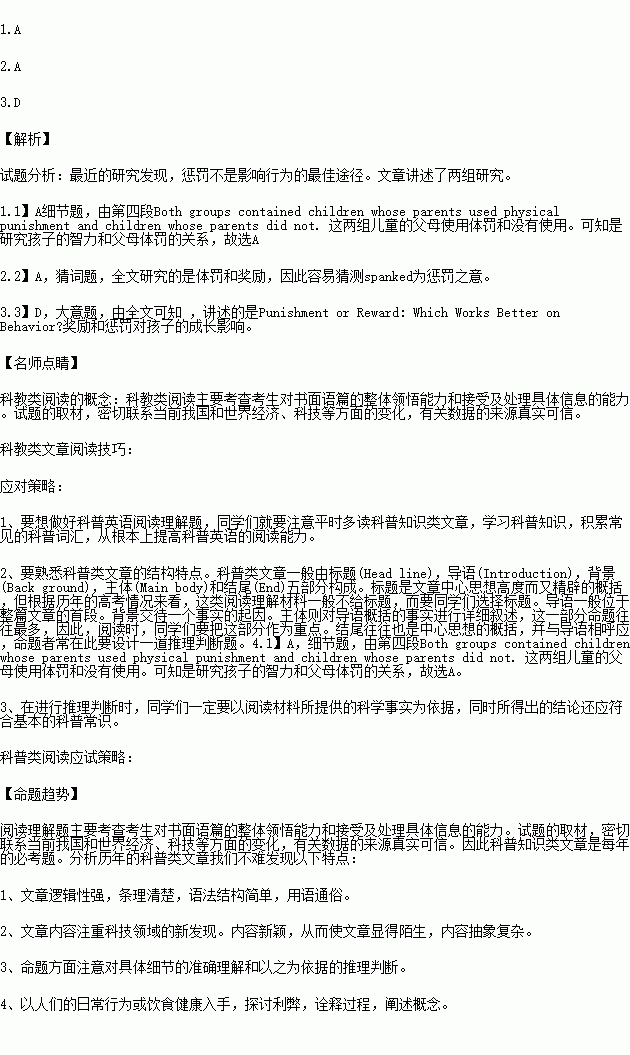题目内容
Two recent studies have found that punishment is not the best way to influence behavior.
One showed that adults are much more cooperative if they work in a system based on rewards. Researchers at Harvard University in the United States and the Stockholm School of Economics in Sweden did the study.
They had about two hundred college students play a version of the game known as the Prisoner’s Dilemma. The game is based on the tension between the interests of an individual and a group. The students played in groups of four. Each player could win points for the group, so they would all gain equally. But each player could also reward or punish each of the other three players. Harvard researcher David Rand says the most successful behavior proved to be cooperation. The groups that rewarded the most earned about twice as much in the game as the groups that rewarded the least. And the more a group punished itself, the lower its earnings. The study appeared last month in the journal Science.
The other study involved children. It was presented last month in California at a conference on violence and abuse. Researchers used intelligence tests given to two groups. More than eight hundred children were aged two to four the first time they were tested. More than seven hundred children were aged five to nine. The two groups were retested four years later, and the study compared the results with the first test. Both groups contained children whose parents used physical punishment and children whose parents did not.
The study says the IQs of the younger children who were not spanked were five points higher than those who were. In the older group, the difference was almost three points. The more they are spanked, the slower their mental development.
1.Which of the following is TRUE according to the second study?
A. Children’s IQs have much to do with physical punishment.
B. The study is about violence and cooperation of children.
C. The children tested were divided into groups of four.
D. Children’s mental development only relies on their IQs.
2. What does the underlined word “spanked” refer to?
A. punished B. blamed C. tested D. praised
3.What might be the best title for the text?
A. The Best Way to Correct Misbehavior
B. Punishment Is the Best Way of Education
C. Cooperation Is the Most Successful Behavior
D. Punishment or Reward: Which Works Better on Behavior?


 imes as many as 12 hours. But it’s exciting to meet people from all over the world.
imes as many as 12 hours. But it’s exciting to meet people from all over the world.